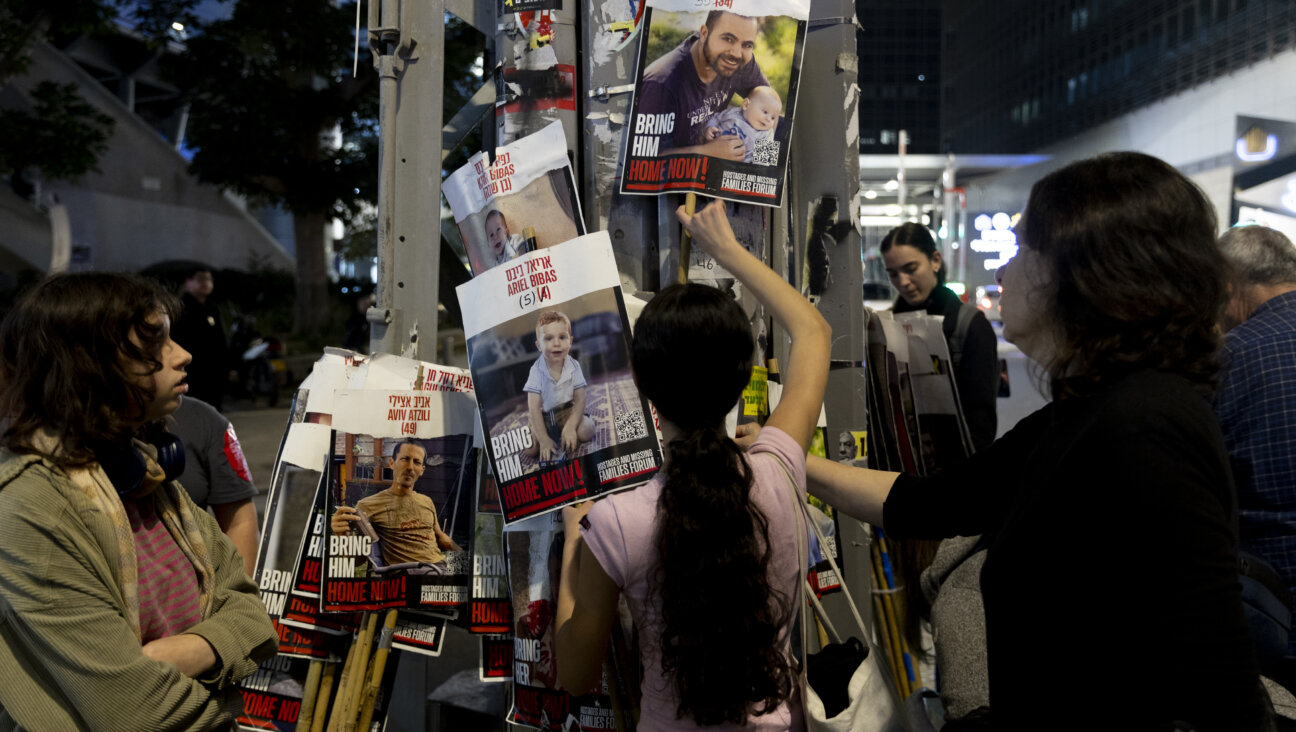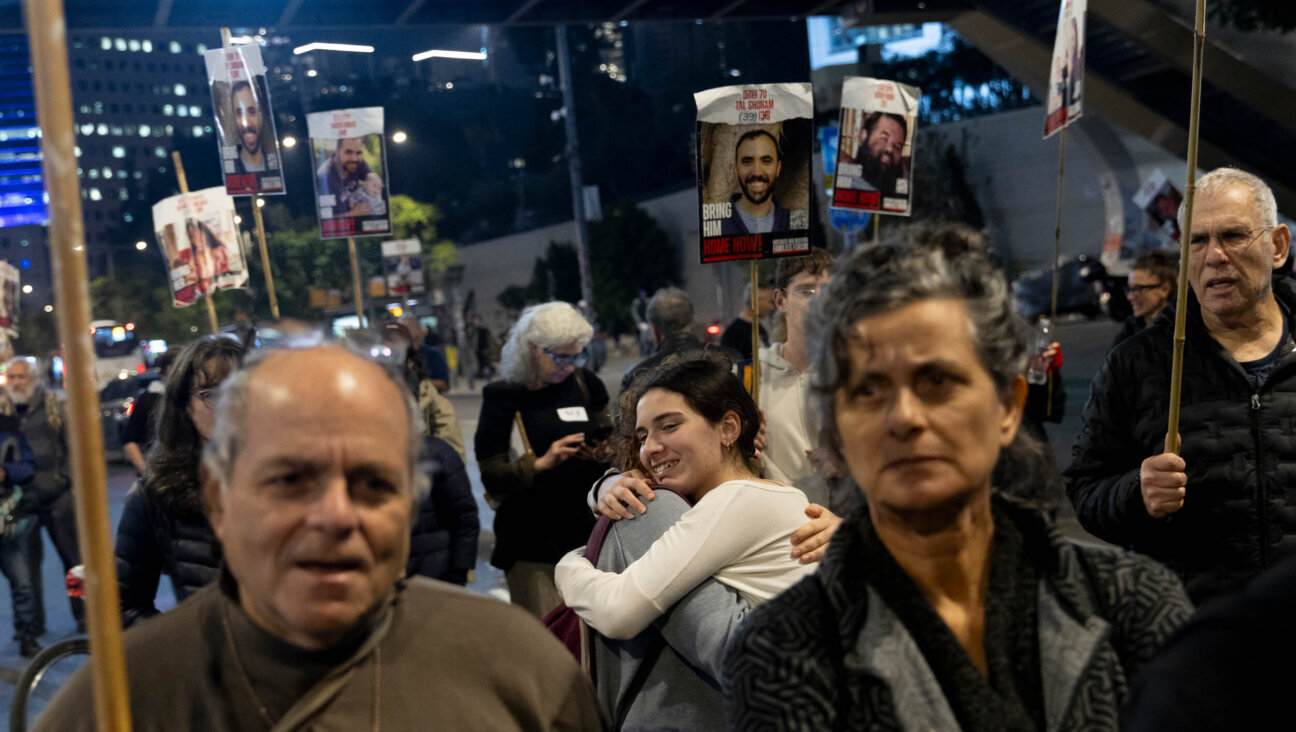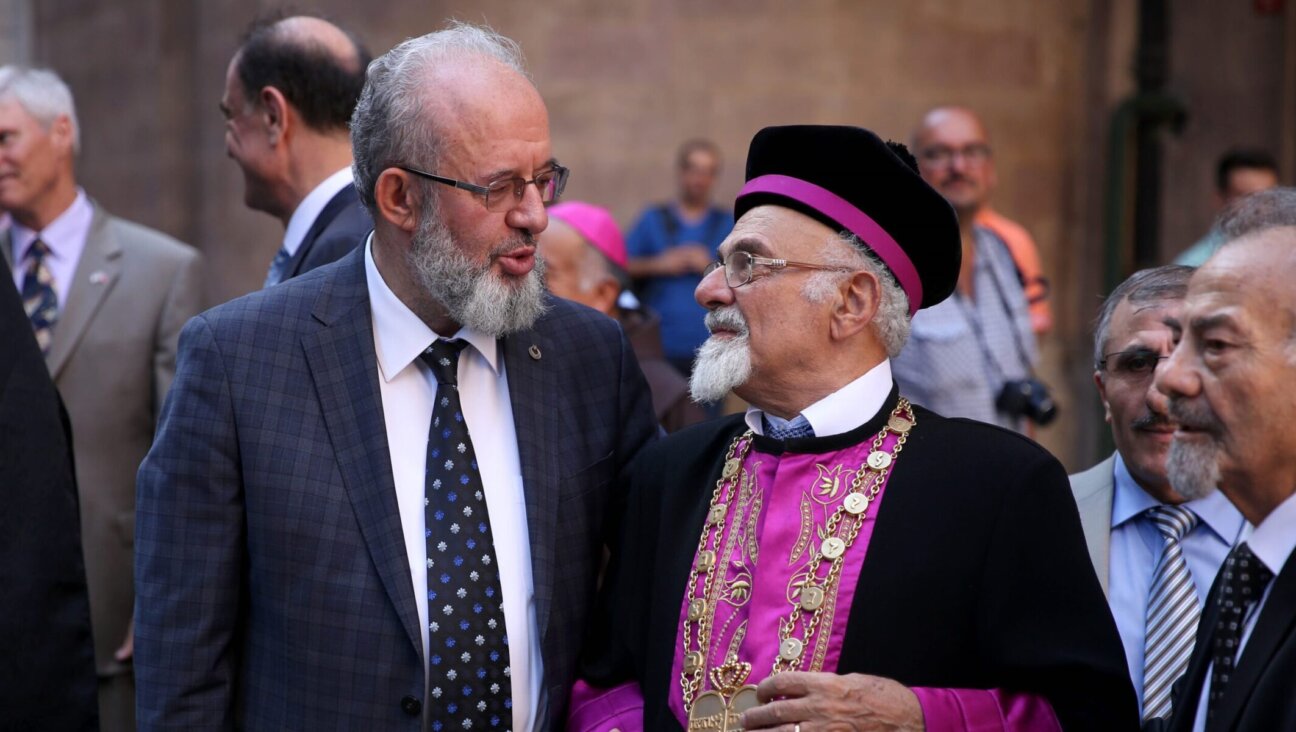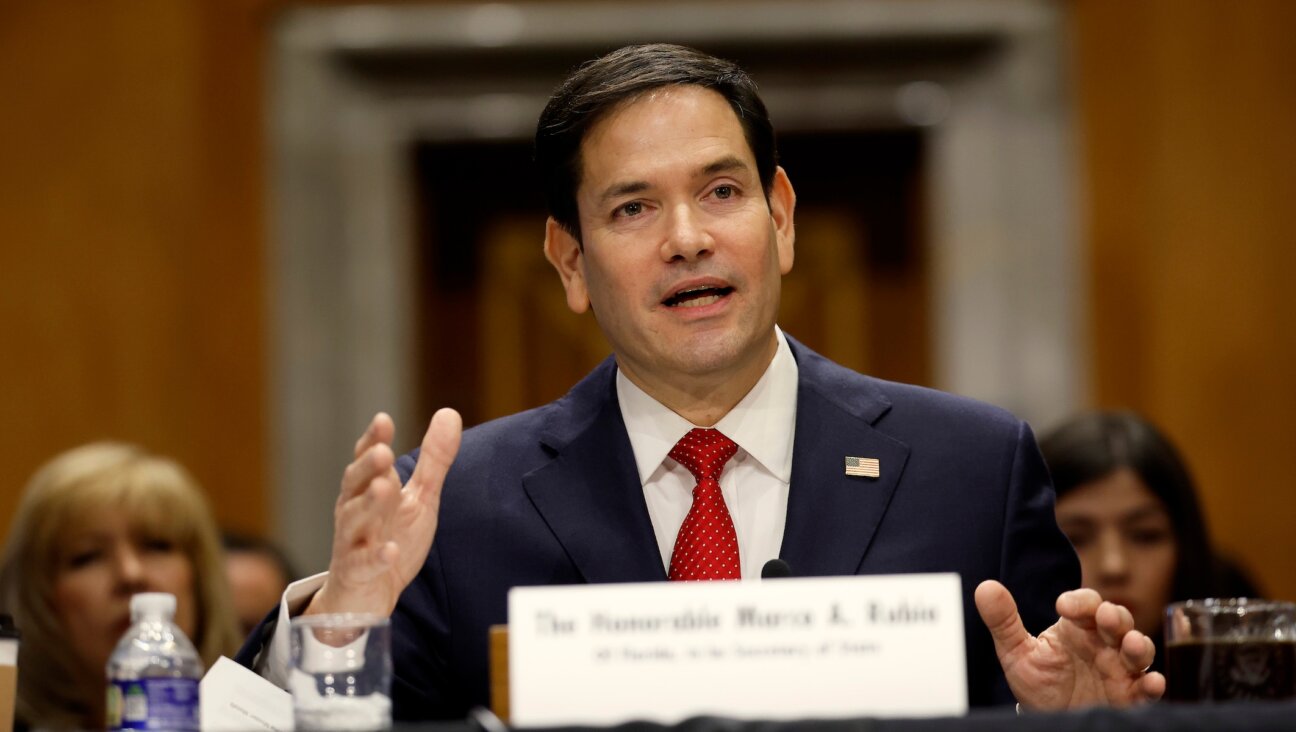Brothers’ Judaism Swings to an East African Beat
Having a tough time finding a good Jewish day school for your kids? Have you considered Semei Kakungulu School outside Mbale, Uganda?
Founded in the late 1990s by the polymath brothers Joab Jonadav Keki — called J.J. by his friends — and Gershom Fizomu, the school has proved enormously popular. Dozens of Ugandan Jewish students — called Abayudaya Jews — attend the school, as well as dozens more Muslim and Christian students.
“There are about 163 students,” 60 of whom hail from the 600-member Jewish community, Fizomu told the Forward during a recent visit to New York. “We wanted our kids to have access to Jewish education aside from secular.”
The brothers are in the United States raising money and awareness about their small community. Two weeks ago they attended a conference on Jewish diversity in San Francisco organized by the Institute for Jewish & Community Research, a think tank led by Gary and Diane Tobin. And the brothers have been speaking at synagogues and community centers on the East Coast. The Forward caught up with them at a recording studio in New York, where they were cutting a CD of Hebrew and Ugandan songs written by Keki.
The Abayudaya Jews have one of the more unusual stories in contemporary Jewish history. The group was founded in 1919 when a local leader, Semei Kakungulu, split from the Christian missionaries who had been proselytizing in the areas around Mbale. According to researcher Karen Primack, who has visited the region and written numerous articles about the Abayudaya Jews, Kakungulu insisted that the missionaries were misreading the Bible. The Abayudaya community began practicing Old Testament customs — observing the Sabbath, practicing circumcision, keeping dietary laws — when a Jewish visitor from Jerusalem stayed with the community for six months during the 1920s and taught it modern ritual. The Abayudaya have practiced Judaism ever since. Last February a Conservative rabbinical court came to Uganda and formally converted 300 of the 600 practicing Abayudaya Jews.
Semei Kakungulu is the community’s first Jewish school.
Hebrew and Judaism are taught on a voluntary basis to the Jewish children, which marks a distinct shift from the religious schools most Ugandans know. According to Fizomu, Christian schools require their students to convert to Christianity before they may attend. “This is our response to the missionary schools,” said Fizomu, who is Semei Kakungulu’s principal as well as a teacher of Hebrew and Judaism. “Hebrew and Judaism is not compulsory.”
According to Keki and Fizomu, the school has proved a model of tolerance and enlightenment. “Nobody fights the other because of religion,” Fizomu said. “There is respect for each other.” Sixty percent of the students are female, including some mothers who have gone back to school. Last year one of the married women became the first such Mbale woman to pass the entrance exams to go to college.
The school proved so successful that, more recently, the brothers added a kindergarten, the Hadassah Infant School, for children ages 3 to 8. So far Hadassah has about 50 children enrolled.
At the New York recording studio, Keki stepped into a sound booth and began singing in Hebrew while Fizomu sat intently playing a keyboard. The song had a rhythmic, East African beat.
“You know what they’re singing?” said Laura Wetzler, a musician and singer of Kabbalistic songs who hosted the brothers a few nights earlier at her home in the Berkshires. “Eyn Keloheynu” (“None Is Like Our God”), she said, naming the traditional synagogue hymn.
The brothers were raised in a musical family — their father was a musician and the spiritual leader of the Abayudaya — and they began raising money for Semei Kakulugulu by playing concerts and selling CDs in Uganda, including “Shalom Everybody Everywhere!”
The brothers exude an energy and creative zest that would make any Jewish mother proud.
Although they are still relatively young — Fizomu is 34, Keki will be 43 later this month — they have made their mark in Mbale. Keki recently was elected chairman of the sub-county of Namanyonyi.
Keki faced opposition from two Muslim politicians — one of whom tried to make the campaign about Keki’s Judaism. “He said, ‘Why do you elect him? He’s a Jew….’ Most Muslims didn’t listen to him.”
Keki is of medium height with dark skin and a scruffy beard. Fizomu is a head shorter than his brother and wore a colorful African vest and a white and purple yarmulke. “I made that,” said Keki of his brother’s yarmulke, with a smile.
In addition to being a politician, an educator and a musician, Keki is also a coffee farmer. As young men Keki and Fizomu practiced Judaism in secret under the regime of Idi Amin, which outlawed all religions other than Islam and Christianity. The number of Jews in Uganda fell from 3,000 to 600 during the dictator’s reign. In 1988, after the fall of Amin, Keki, Fizomu and their other brother, Aaron, were jailed for four days when they demanded the return of Abayudaya land that had been confiscated.
Keki and Fizomu have six brothers and sisters, and have large families of their own. Keki has nine children of his own and has adopted 21, 12 of them from parents who had AIDS; Fizomu has two children of his own and looks after six others.
The brothers have yet to visit Israel. They haven’t bothered applying for visas because, as was reported in the August 23 issue of the Forward, the requests of two of their fellow Abayudaya Jews were turned down.
According to Keki, the Israeli Interior Ministry doesn’t recognize their conversions because they were performed by Conservative rabbis. “We have failed to convince an Orthodox rabbi to come,” Keki said. Because their settlement is without electricity and running water, it has been a hard sell getting Orthodox rabbis to make the trip.
“We have a problem with the word ‘conversion,’” said Harriet Bograd, a friend of the brothers and treasurer of Kulanu, an organization that seeks to restore and repatriate to Israel communities that have historic ties to Judaism. “They have been living as Jews for three generations. It’s not conversion… it’s affirmation.”
A message from our Publisher & CEO Rachel Fishman Feddersen

I hope you appreciated this article. Before you go, I’d like to ask you to please support the Forward’s award-winning, nonprofit journalism so that we can be prepared for whatever news 2025 brings.
At a time when other newsrooms are closing or cutting back, the Forward has removed its paywall and invested additional resources to report on the ground from Israel and around the U.S. on the impact of the war, rising antisemitism and polarized discourse.
Readers like you make it all possible. Support our work by becoming a Forward Member and connect with our journalism and your community.
— Rachel Fishman Feddersen, Publisher and CEO























